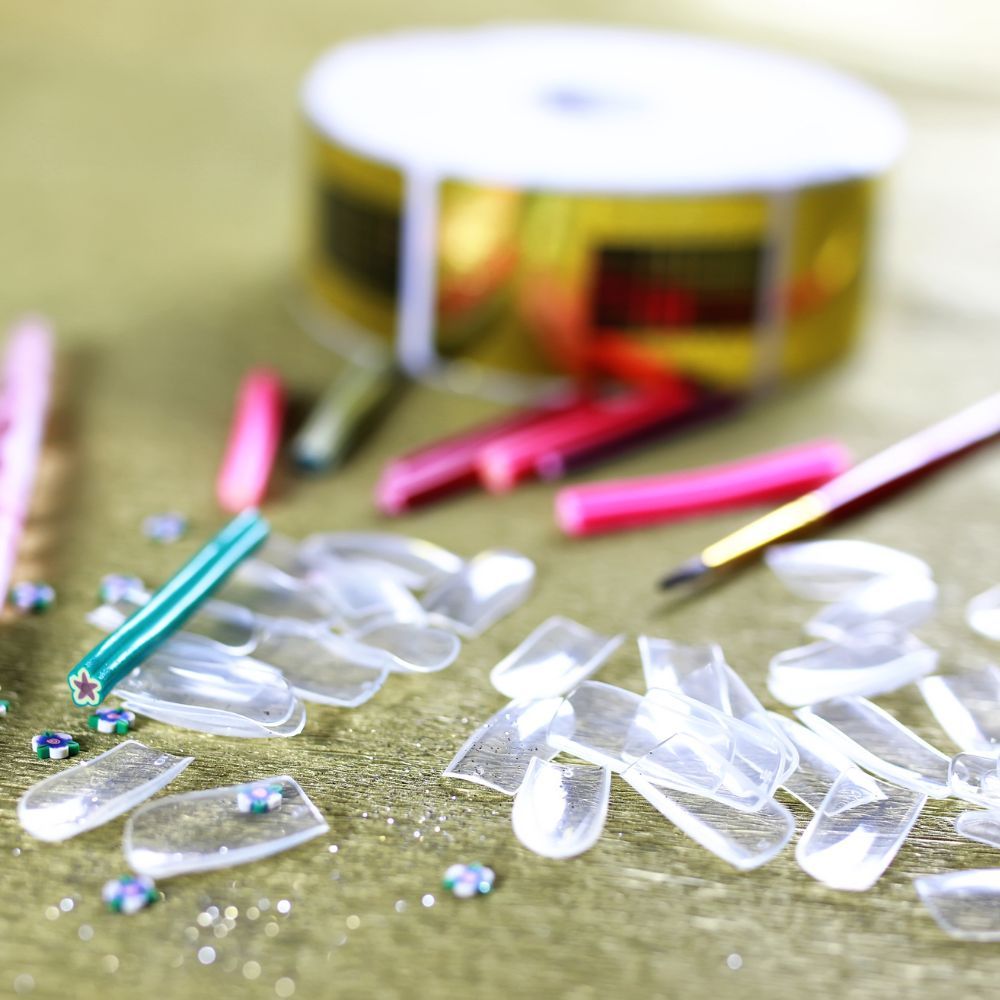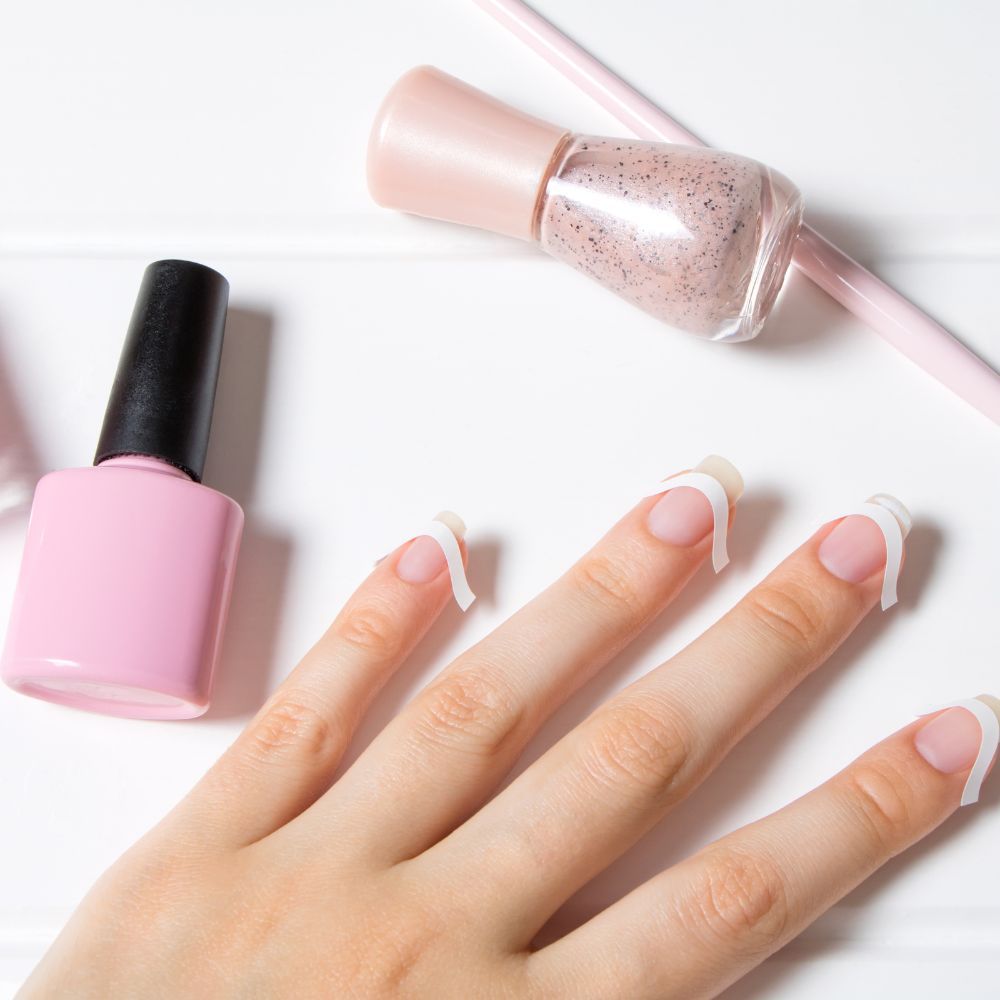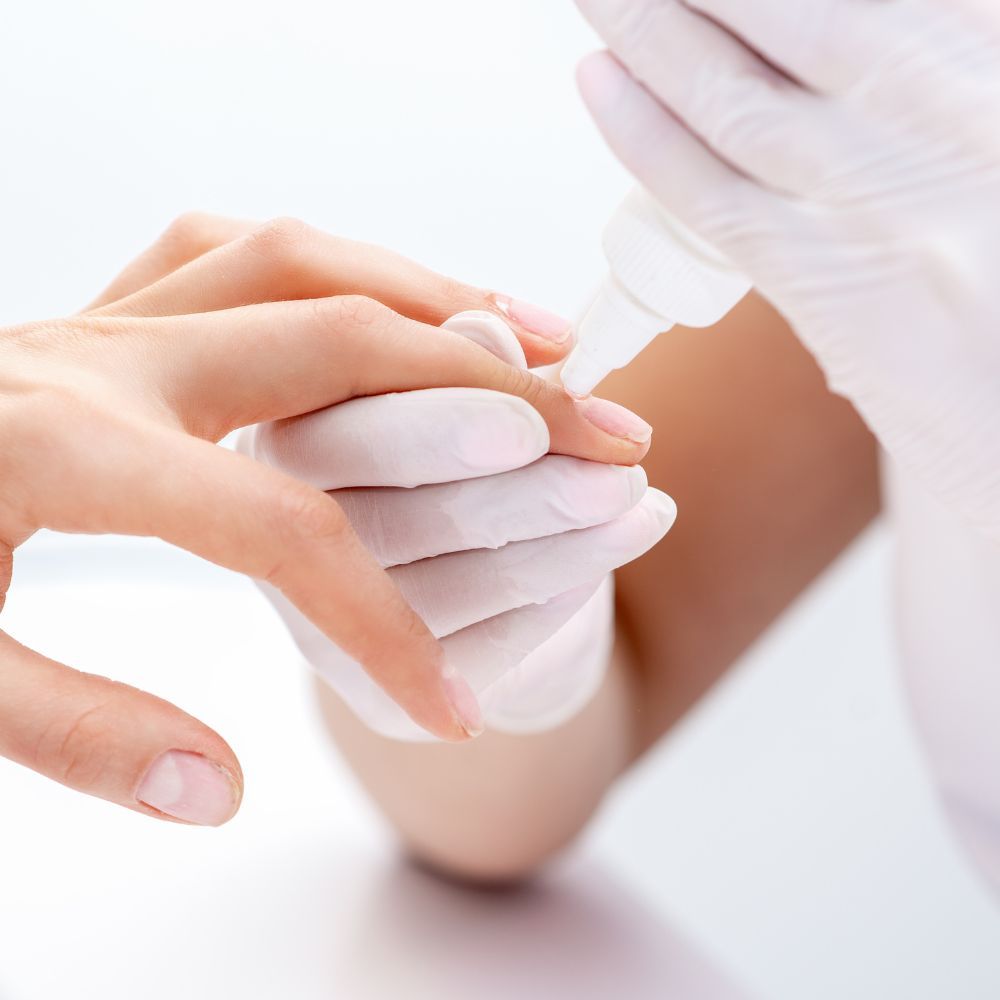We all know the feeling. You're in the middle of doing your own nails and you think to yourself, "huh, I wonder if I can use this polygel as glue for my press on nails?" We've been there. We've all been there. And while the answer is a resounding "no", we're not mad about it. In fact, we're actually kind of relieved.
Why Polygel Won't Work as Glue for Your Press On Nails
So you might be wondering why polygel won't work as glue for your press on nails. After all, it's a strong adhesive, right? Well, yes and no. Polygel is designed to adhere to your natural nails, not to fake ones. The ingredients in polygel are different from those in traditional nail glue, which is what you need to use to secure your press ons.
Not only that, but polygel is also much thicker than traditional nail glue. This means that it will take considerably longer for it to dry, which is not ideal when you're trying to apply press on nails. Trust us, you don't want to be stuck waiting around for your polygel to dry before you can start enjoying your new mani!
Finally, polygel is also much more expensive than traditional nail glue. So even if you could use it to glue on your press ons (which you can't), it's not worth it when you could just buy a bottle of nail glue for a fraction of the price.
Polygel is a unique nail enhancement product that combines the qualities of both gel and acrylic. It is typically used to build and shape extensions on natural nails. While polygel is indeed a strong adhesive for natural nails, it is not designed to bond well with press-on nails.

Here's why polygel won't work as glue for your press-on nails:
- Adhesive Properties: Polygel is formulated to adhere to the natural nail plate by bonding with its surface. The composition and texture of press-on nails are different from natural nails, making it difficult for polygel to form a secure and long-lasting bond.
- Flexibility and Fit: Press-on nails are pre-shaped and designed to fit a variety of nail sizes and shapes. On the other hand, polygel is applied and molded to match the individual's natural nails. The flexibility and adaptability of polygel do not align with the predetermined shape and structure of press-on nails.
- Application Technique: Applying polygel requires specific tools and techniques to achieve a proper bond with the natural nail. It involves a process of layering and curing under a UV or LED lamp. This process is not suitable or effective for securing press-on nails.
To ensure the best results and long-lasting wear, it is recommended to use a dedicated nail adhesive or nail glue specifically designed for press-on nails. Nail glues formulated for press-ons have a stronger bond and are designed to work with the materials used in press-on nails, providing a secure and reliable hold.
So, when it comes to attaching press-on nails, it's best to use the appropriate nail glue rather than attempting to use polygel as an adhesive. This way, you can enjoy the convenience and versatility of press-on nails without compromising their adhesion and durability.
In short, don't try to use polygel as glue for your press on nails. It won't work and it's not worth the money. Stick with traditional nail glue and enjoy your fabulous new mani!
FAQs about Nail Glue for Long-Lasting Press-On Nails
Here are five frequently asked questions (FAQs) about nail glue for long-lasting press-on nails along with their answers:
What is nail glue, and how does it work?
Nail glue is a strong adhesive specifically formulated for securing press-on nails. It typically comes in a small bottle with a brush-on applicator. Nail glue works by creating a bond between the natural nail and the press-on nail, ensuring a secure and long-lasting hold.

How do I apply nail glue to press-on nails?
To apply nail glue, start by cleaning your natural nails and ensuring they are dry and free from any oils or residue. Apply a small amount of glue onto the press-on nail, focusing on the area that will come into contact with your natural nail. Press the press-on nail onto your natural nail, holding it firmly for a few seconds to allow the glue to set.
How long does nail glue hold press-on nails in place?
When applied correctly, nail glue can provide a strong bond for press-on nails. The longevity of the hold can vary depending on factors such as the quality of the glue, the condition of your natural nails, and your daily activities. Generally, with proper application and care, press-on nails secured with nail glue can last up to two weeks or longer.
Can I remove press-on nails secured with nail glue easily?
Press-on nails secured with nail glue can be removed, but the process may require a bit of patience and care. Here are some steps to help you remove press-on nails secured with nail glue:
- Prepare: Gather all the necessary items, including acetone-based nail polish remover, a small bowl or dish, a soft cloth or paper towels, and a cuticle stick or orangewood stick.
- Soak Nails: Pour enough nail polish remover into the bowl or dish to fully submerge your fingertips. Place your fingertips in the bowl and let them soak for about 10-15 minutes. The acetone in the nail polish remover helps to dissolve the glue.
- Gently Remove: After soaking, gently try to lift the edges of the press-on nails using a cuticle stick or orangewood stick. Be cautious and avoid using excessive force, as you don't want to damage your natural nails. If the nails are not easily coming off, soak them for a few more minutes and try again.
- Wipe and Clean: Once the press-on nails are removed, use a soft cloth or paper towel to wipe away any remaining glue residue from your natural nails. You can also use the cuticle stick to gently scrape off any leftover glue.
- Moisturize: After the glue residue is removed, moisturize your nails and cuticles with a nourishing oil or lotion to replenish moisture and promote nail health.
If you find that the nail glue is not loosening easily with the nail polish remover, you may need to repeat the soaking process or try using a stronger acetone-based remover specifically designed for nail glue removal. Additionally, if you encounter any difficulty or if your natural nails are feeling sensitive or damaged, it's best to seek professional assistance from a nail technician.
Remember, patience and gentle handling are key during the removal process to minimize the risk of damaging your natural nails.

Are there any tips for maximizing the longevity of press-on nails secured with nail glue?
To ensure long-lasting results, consider the following tips:
- Prep your natural nails properly by cleaning, filing, and removing any oils or residue before applying the press-on nails.
- Apply a thin, even layer of nail glue to avoid excess glue seeping out from the sides.
- Avoid excessive exposure to water or prolonged immersion, as it can weaken the bond.
- Be mindful of activities that may put excessive stress on the nails, such as opening cans or heavy lifting. Consider wearing gloves to protect the press-on nails.
- If a press-on nail becomes loose, you can apply a small amount of nail glue to reattach it.
Remember, follow the instructions provided with the specific nail glue product you choose, as different brands may have slightly different application and removal instructions.
If you're anything like us, you're always on the lookout for the best of the best when it comes to your beauty routine. And when it comes to nails, there's nothing that quite compares to the perfect set of press ons. But with so many options on the market, it can be difficult to know where to begin. That's why we've done the research for you and found the best nail glue for press on nails. So whether you're looking for a quick fix or a long-term solution, we've got you covered. Click the link and check out the prices today. Happy shopping!
Read our article about best nude nail polish here!
Read our article about best hair brush for fine hair here!
Read our article about best deodorant for kids here!







